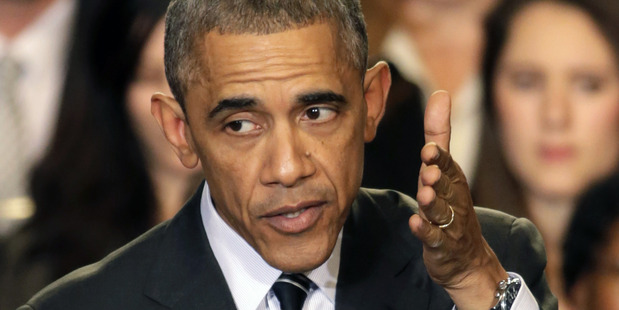Ferguson Unrest Exposes an Incapable US Judicial System
(China) on 28 November 2014
by Zhi Zhenfeng (link to original)
According to information currently available, the decision on this particular case is not problematic from a legal standpoint, at the very least not presenting any obvious procedural issues. But the outcome is still not one that the American public is willing to accept. Despite an ongoing Justice Department investigation as to whether or not it will pursue a civil suit against Wilson and the local police department, the masses have grown restless. Although this has been the cause of some disenchantment among the many in our country who admire U.S. law and order and its system of government, these events are nothing new to Americans. Over the past half century, racial discrimination has been the cause of at least six riots within the country, the largest being the 1992 Los Angeles riots that led to the deaths of 58 people and an additional 11,900 arrests.
As some arguing on behalf of the United States have pointed out, despite the frequent outbreak of these riots, Americans paradoxically still largely hold faith in the judiciary. Even within the Ferguson riots, what people are protesting is only the grand jury's decision rather than the grand jury itself, and certainly not the judicial system.
Indeed, one can at once establish two contradictory facts: Americans believe in their judiciary, but at the same time lack confidence in its ability to make decisions when it comes to the deeply-rooted problem of racial discrimination. In other words, judicial processes within each case are seen as fair, but the bodies responsible for rendering judgment are perceived as less than competent, if not exactly given to injustice. It is small wonder that Americans believe so in their institutions, as there are those in other countries who trust in those institutions even more implicitly. But why have they lost confidence in the system as a whole?
The psychology underlying this lack of confidence in the system's ability to resolve the issue of racial discrimination has a solid basis in history. Racism against blacks existed long before the United States was founded as a nation. Even after its founding, the blood, tears and despair of U.S. blacks became etched within the American experience, from the Three-Fifths Compromise in the 1787 Constitution to over 10 racial segregation laws passed by Congress, to the notoriously controversial Supreme Court rulings that consistently upheld discriminatory practices in a series of cases that included Dred Scott v. Sandford and Plessy v. Ferguson. It was only with the Civil Rights Act of 1964 that racial segregation was truly overturned. By then, a full 188 years had passed since the nation's founding. Basketball star Kobe Bryant has spoken directly of “the U.S. judicial system's injustice," and victim Michael Brown's parents have lamented that there exists a "problem with the system.”
But it is also here where U.S. rule of law shows its unique charm. Americans believe that a fair legal system, a weak judicial system or even one that at times contributes to abuse and injustice, will still be able to produce “just” decisions in the sense of “procedural justice,” or at the very least dispense justice on a case-by-case basis. This, despite the fact that historically the Supreme Court's ruling upholding racism moved events toward a civil war that saw 720,000 people dead; this, despite the fact that in the present day the judicial system, in accordance with an ostensibly perfectly-developed system for the rule of law that is aimed at safeguarding civil rights, can issue a ruling that acts as a flashpoint for demonstrations and riots. Even if the riots subside, no one knows how to get to the crux of the issue. The system of checks and balances has become a tool for each to veto the other, making for a costly, inefficient and ultimately powerless judiciary.
It took nearly two centuries to uproot institutionalized racial discrimination, while a true end to racism within society remains far from sight. The Ferguson riots made clear that we should have taken note much sooner of a certain flaw within America's system of government: when addressing real structural conflicts within society, its mechanisms operate similarly to Western medicine. It can treat symptoms, but its healing powers are more akin to a “tonic,” unable to cure the illness but unlikely to hurt either, preserving the hope of recovery through long diligence to care. But the key question is this: In third-world countries where rapid development comes hand in hand with proliferating problems, do people have the patience to wait 188 years for justice?
The author is deputy editor-in-chief of the Global Law Review.


I am a citizen of the United States and a registered voter here in Cranston, Rhode Island. Just a thought question for those young Chinese who still vaguely remember ” Red China ” and the ideals of socialism-communism: Do you think the American legal system can possibly rise morally superior to the rotten and unjust American economic system ? Where in the world is capitalism all about equality and justice for all ? Certainly not here in America !
http://radicalrons.blogspot.com/